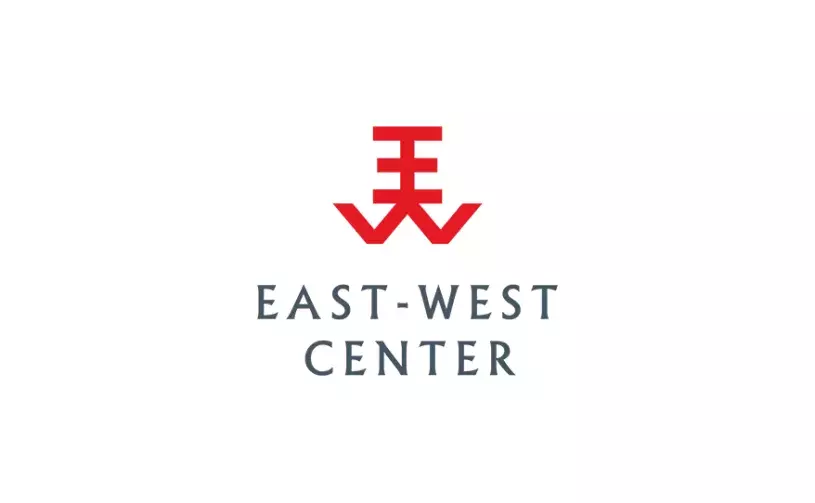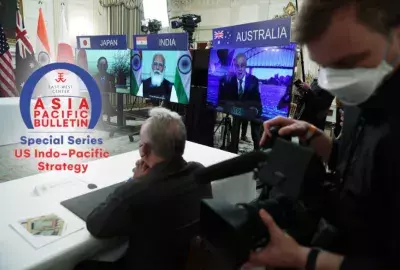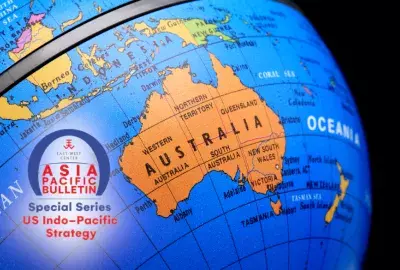Error message

|
Ehito Kimura, Associate Professor at the University of Hawai‘i at Manoa, explains that “populism is not just a movement but also a political strategy.” |
Indonesia’s Varieties of Populism
Populist politics burst onto Indonesia’s national stage in 2014 during the country’s presidential election which pitted two leaders with starkly contrasting styles. Joko Widodo, dubbed a “polite” or “technocratic” populist campaigned against the establishment by portraying himself as an affable “man of the people” and a pro-poor reformer with a track record of getting things done. Prabowo Subianto also campaigned against the establishment but more angrily and bombastically, condemning corruption and economic ‘traitors.’ More recently, Jakarta’s 2016 gubernatorial elections saw a surge of Islamic forces engaging in populist-style politics, organizing mass rallies against the Chinese Christian incumbent and claiming that he had committed blasphemy.
What explains the rise of this form of politics in Indonesia? Is it part of a global wave of populism seen in places as disparate as Austria and the United States? What role do Indonesian national and local conditions play? Part of the answer is that populism is not just a movement but also a political strategy. Indonesia is the world’s second largest democracy and voting rates are high. The varieties of populism in Indonesia can in part be understood as a function of the varied roots of populism and its appeal to different kinds of audiences.
Global Roots
Populism is often associated with reactions against globalization and neo-liberal reform policies. In Europe, the recent spate of populist elections suggests a frustration with free and open trade as well as migration and immigration, both of which are components of a more globalized world.
Indonesia is no stranger to the politics of globalization, the 1997 Asian Financial Crisis led to the fall of the Suharto regime and the transition to democracy. Since then, Indonesia has been experiencing broad based economic growth, although globalization and neoliberal development policies over the years also arguably led to rising inequality, a large urban poor, and an emerging but fragmenting middle class including an Islamic middle class which may feel that they have not reaped the full benefits of developmental policies.
In this context, one audience of populist politics is the constituency which views the global economy and ‘foreign powers’ as culprits in their own economic malaise. This became a central part of Prabowo’s campaign in 2014. It may also be part of the structural foundations of an Islamicized populist politics which in 2016 came to frame the discourse of an ethnic Chinese Christian as incompatible with or even hostile to economic and spiritual well-being. But global factors only partially explain populist appeal.
National Context
Nationally, Indonesia was not experiencing any profound degree of economic or political turmoil in 2014. President Susilo Bambang Yudhoyono’s administration oversaw not just an era of broad-based economic growth but also a decade of political stability, including the institutionalization of many parts of the political system.
However, deep structural problems persist. The sheer size of Indonesia’s population meant that even though poverty rates fell to about 16 percent, tens of millions still lived below the poverty line. Corruption too remained endemic. The Corruption Eradication Commission (KPK) investigated and prosecuted several high level officials for financial improprieties including graft and extortion. In 2012, investigations tarnished the president when several members of his own party were accused of corruption, with some eventually jailed. Furthermore, in the waning years of his term, President Yudhoyono engaged in nepotistic tendencies, pushing to transfer power to his other family members, a prospect that led many voters to eventually abandon his party.
By the 2014 election, it became clear that Indonesians were ready for a change, and both Jokowi and Prabowo offered stark contrasts to the Yudhoyono era. Jokowi emerged as the fresh and humble candidate, forward-looking and drawing on his own biography and his local experiences as mayor of Solo and governor of Jakarta. Prabowo offered his angrier and even demagogic populist style. He railed against corruption, called for economic nationalism and for more “firm leadership.” Prabowo’s populism looked backwards, with the candidate self-styling himself on the image of Sukarno, Indonesia’s first president.
Local Roots
Finally, local politics mattered too. In the wake of Indonesia’s democratization and ‘big-bang’ decentralization in the late 1990s, local leaders had been empowered in new and unprecedented ways. In some cases it led to the decentralization of corruption and personalist politics in the regions. But it also produced leaders like Joko Widodo, whose national popularity emerged from his local level success.
A decade before becoming a household name, then-Mayor Widodo implemented pro-poor reformist policies in areas such as healthcare, education, welfare, and infrastructure. He gained a reputation as a leader who embodied both pro-investment and also pro-poor goals, and he was charismatic yet “down-to-earth” and humble. Under his tenure, his city, Solo rose to the top ranks in national governance and business attractiveness surveys and Mr. Widodo gained national and international recognition.
By the end of his second term, Jokowi’s popularity soared to the extent that in his reelection campaign, he received an extraordinary 90% of the vote. He rode that momentum from the mayor of Solo to the governorship of Jakarta and then all the way to the presidential palace. In other words, Jokowi’s ‘technocratic’ populist appeal can only be understood from its local beginnings.
2019
If recent trends are any indication, the 2019 presidential elections in Indonesia will once again feature populist politics though in what configuration is still impossible to say. Today, President Jokowi’s popularity remains relatively high, especially around his technocratic agenda such as infrastructure development initiatives. At the same time, the sheen of his reformist and populist image has worn off somewhat as he has become mired in the everyday politics of governing. Prabowo may be seeking an electoral rematch and honing his angry and demagogic populist style. And the role of Islamic populism which surprised many in 2016 may also have a pivotal role to play.
|
Ehito Kimura, Associate Professor at the University of Hawai‘i at Manoa, explains that “populism is not just a movement but also a political strategy.” |
Indonesia’s Varieties of Populism
Populist politics burst onto Indonesia’s national stage in 2014 during the country’s presidential election which pitted two leaders with starkly contrasting styles. Joko Widodo, dubbed a “polite” or “technocratic” populist campaigned against the establishment by portraying himself as an affable “man of the people” and a pro-poor reformer with a track record of getting things done. Prabowo Subianto also campaigned against the establishment but more angrily and bombastically, condemning corruption and economic ‘traitors.’ More recently, Jakarta’s 2016 gubernatorial elections saw a surge of Islamic forces engaging in populist-style politics, organizing mass rallies against the Chinese Christian incumbent and claiming that he had committed blasphemy.
What explains the rise of this form of politics in Indonesia? Is it part of a global wave of populism seen in places as disparate as Austria and the United States? What role do Indonesian national and local conditions play? Part of the answer is that populism is not just a movement but also a political strategy. Indonesia is the world’s second largest democracy and voting rates are high. The varieties of populism in Indonesia can in part be understood as a function of the varied roots of populism and its appeal to different kinds of audiences.
Global Roots
Populism is often associated with reactions against globalization and neo-liberal reform policies. In Europe, the recent spate of populist elections suggests a frustration with free and open trade as well as migration and immigration, both of which are components of a more globalized world.
Indonesia is no stranger to the politics of globalization, the 1997 Asian Financial Crisis led to the fall of the Suharto regime and the transition to democracy. Since then, Indonesia has been experiencing broad based economic growth, although globalization and neoliberal development policies over the years also arguably led to rising inequality, a large urban poor, and an emerging but fragmenting middle class including an Islamic middle class which may feel that they have not reaped the full benefits of developmental policies.
In this context, one audience of populist politics is the constituency which views the global economy and ‘foreign powers’ as culprits in their own economic malaise. This became a central part of Prabowo’s campaign in 2014. It may also be part of the structural foundations of an Islamicized populist politics which in 2016 came to frame the discourse of an ethnic Chinese Christian as incompatible with or even hostile to economic and spiritual well-being. But global factors only partially explain populist appeal.
National Context
Nationally, Indonesia was not experiencing any profound degree of economic or political turmoil in 2014. President Susilo Bambang Yudhoyono’s administration oversaw not just an era of broad-based economic growth but also a decade of political stability, including the institutionalization of many parts of the political system.
However, deep structural problems persist. The sheer size of Indonesia’s population meant that even though poverty rates fell to about 16 percent, tens of millions still lived below the poverty line. Corruption too remained endemic. The Corruption Eradication Commission (KPK) investigated and prosecuted several high level officials for financial improprieties including graft and extortion. In 2012, investigations tarnished the president when several members of his own party were accused of corruption, with some eventually jailed. Furthermore, in the waning years of his term, President Yudhoyono engaged in nepotistic tendencies, pushing to transfer power to his other family members, a prospect that led many voters to eventually abandon his party.
By the 2014 election, it became clear that Indonesians were ready for a change, and both Jokowi and Prabowo offered stark contrasts to the Yudhoyono era. Jokowi emerged as the fresh and humble candidate, forward-looking and drawing on his own biography and his local experiences as mayor of Solo and governor of Jakarta. Prabowo offered his angrier and even demagogic populist style. He railed against corruption, called for economic nationalism and for more “firm leadership.” Prabowo’s populism looked backwards, with the candidate self-styling himself on the image of Sukarno, Indonesia’s first president.
Local Roots
Finally, local politics mattered too. In the wake of Indonesia’s democratization and ‘big-bang’ decentralization in the late 1990s, local leaders had been empowered in new and unprecedented ways. In some cases it led to the decentralization of corruption and personalist politics in the regions. But it also produced leaders like Joko Widodo, whose national popularity emerged from his local level success.
A decade before becoming a household name, then-Mayor Widodo implemented pro-poor reformist policies in areas such as healthcare, education, welfare, and infrastructure. He gained a reputation as a leader who embodied both pro-investment and also pro-poor goals, and he was charismatic yet “down-to-earth” and humble. Under his tenure, his city, Solo rose to the top ranks in national governance and business attractiveness surveys and Mr. Widodo gained national and international recognition.
By the end of his second term, Jokowi’s popularity soared to the extent that in his reelection campaign, he received an extraordinary 90% of the vote. He rode that momentum from the mayor of Solo to the governorship of Jakarta and then all the way to the presidential palace. In other words, Jokowi’s ‘technocratic’ populist appeal can only be understood from its local beginnings.
2019
If recent trends are any indication, the 2019 presidential elections in Indonesia will once again feature populist politics though in what configuration is still impossible to say. Today, President Jokowi’s popularity remains relatively high, especially around his technocratic agenda such as infrastructure development initiatives. At the same time, the sheen of his reformist and populist image has worn off somewhat as he has become mired in the everyday politics of governing. Prabowo may be seeking an electoral rematch and honing his angry and demagogic populist style. And the role of Islamic populism which surprised many in 2016 may also have a pivotal role to play.







